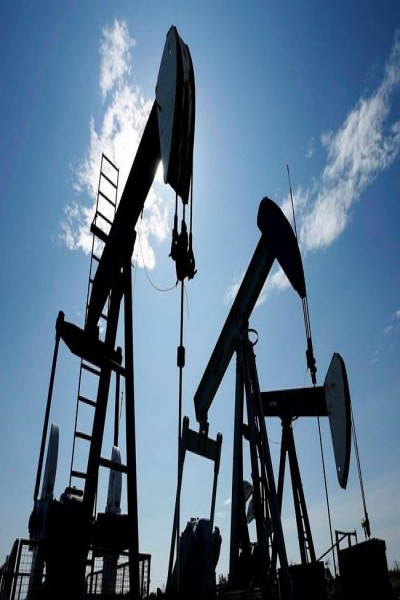
CALGARY — Oil and gas investments may have soured for managers of the Norwegian sovereign wealth fund but two Canadian funds say they have plenty of room for such securities in their portfolios.
In a letter this week, Norway's central bank urged the Norwegian government to consider divesting oil and gas company shares held in the US$1-trillion oil fund to avoid the risk of permanently lower commodity prices. It didn't say why prices might fall.
But low commodity prices are an opportunity to make more investments in the oil and gas sector, not less, according to the corporation that controls $96 billion in Alberta government pension fund assets.
"AIMCo is not considering selling out of its position in the energy industry," Denes Nemeth, spokesman for the Alberta Investment Management Corp., said in an email on Friday.
"The energy sector has been hard hit by the low price of oil, in particular in Alberta, and AIMCo has been active in identifying and investing in strong companies that are well-positioned to weather the current downturn."
He said AIMCo is a long-term investor which is using its equity position in energy companies to encourage the adoption of environmental best practices as part of its climate change strategy.
The Canada Pension Plan Investment Board, Canada's largest pension fund investor with $328 billion under management, owns shares in dozens of energy companies and says it believes the investments will pay off.
In July, it bought a 45 per cent interest from Royal Dutch Shell in an offshore Irish natural gas project and, in June, it committed up to US$1 billion to a new company called Encino Acquisition Partners which is to focus on buying U.S. oil and gas companies.
"We think there will be a large increase in the aggregate demand for energy as the world goes from seven billion people to nearly 10 billion by 2050," said spokesman Dan Madge.
"During that time, the oil and gas sector will remain an important part of the global economy."
Not all investors are enthusiastic about oil and gas — the Caisse de depot et placement du Quebec, with $285 billion in pension funds under management, last month announced it would increase by 50 per cent its investments in low carbon industries while targeting a 25 per cent reduction in its carbon footprint per dollar invested by 2025.
Spokesman Maxime Chagnon said Friday the policy means the fund will consider the carbon impact in all investments but it won't necessarily rule out any particular sector. He wouldn't say if the fund intends to sell any energy securities it currently holds.
A spokeswoman for credit union Desjardins Group said Friday it is still undecided on whether to make permanent a moratorium on energy pipeline loans it enacted in July.
The Norwegian fund has investments in 9,000 companies in 77 countries around the world, with about US$37 billion tied up in oil and gas shares.
Its website lists investments in more than 50 Canadian oil and gas producer, service and pipeline companies but its holdings in each is less than two per cent — for instance, it reports having US$542 million in Suncor Energy Inc. (TSX:SU) stock in 2016, equating to just under one per cent of the company's shares.
CIBC chief economist Avery Shenfeld said higher-risk, higher-reward equities like oil and gas have a place in a balanced portfolio but he said he agrees that Norway could sell its energy shares.
"This is really nothing more than Finance 101," he said in an interview.
"If you've already got a large exposure in your economy to the oil sector and you're putting aside money for a safe haven for when oil turns soft or when you run out of oil, you don't invest in oil and gas equities. You are already heavily invested."
In its letter, the Norwegian central bank makes the same point, noting that Norway has twice the exposure to oil and gas compared with a broad global equity index because of its domestic oil and gas tax revenue and its controlling ownership of international major oil company Statoil.
Follow @HealingSlowly on Twitter.
Dan Healing, The Canadian Press
Share This:




 CDN NEWS |
CDN NEWS |  US NEWS
US NEWS 


























